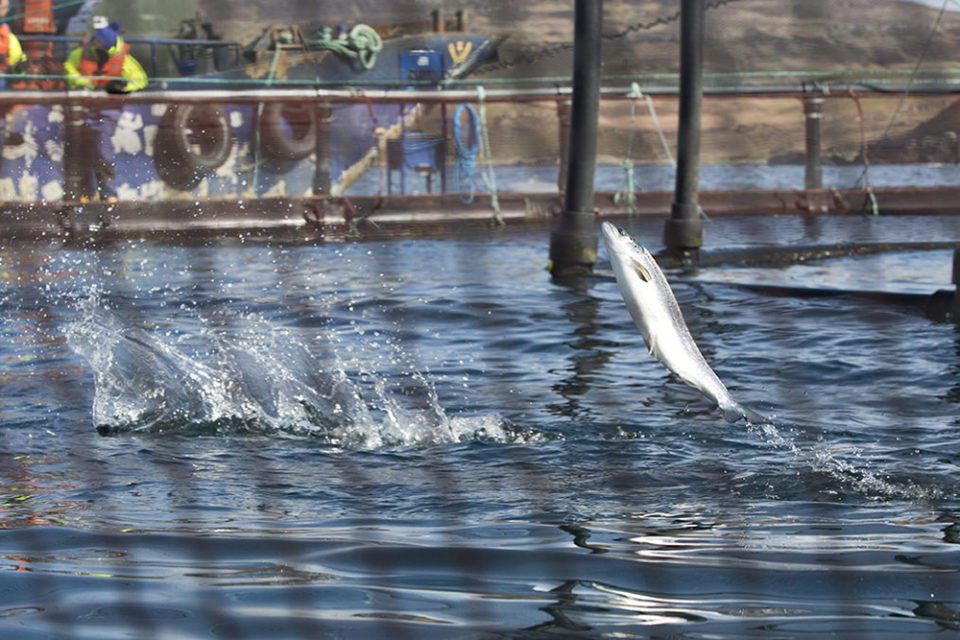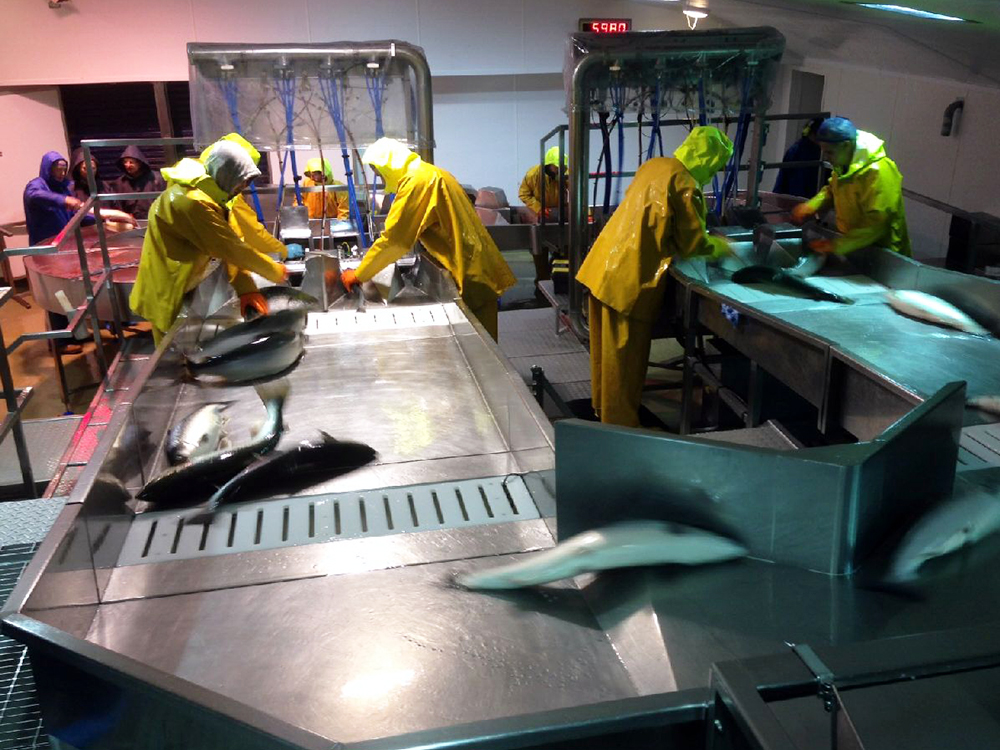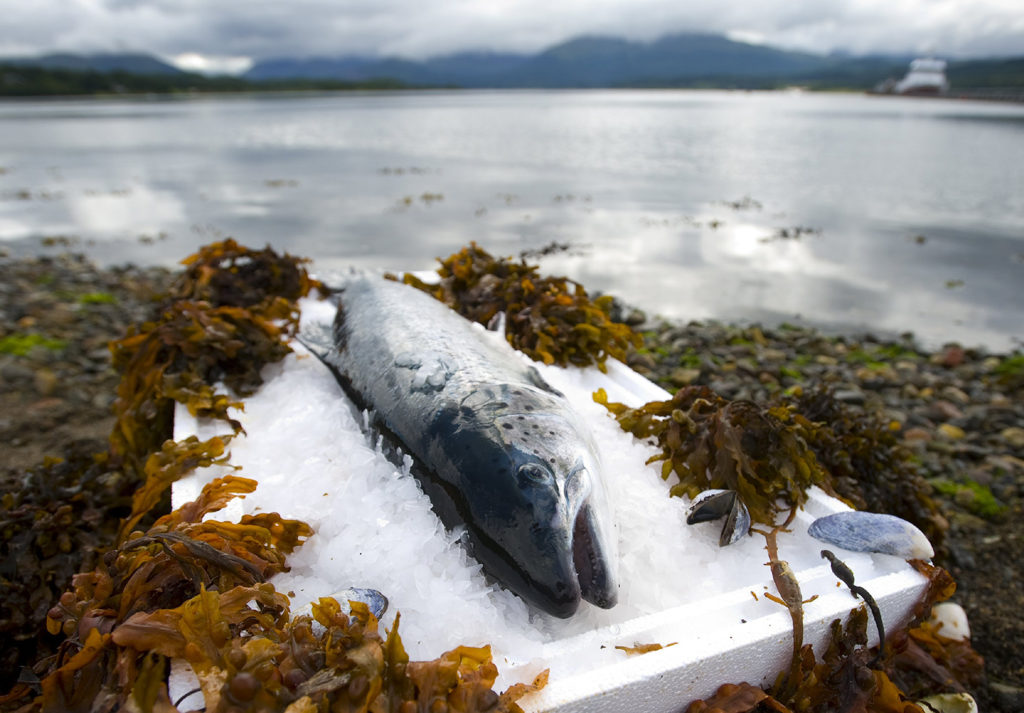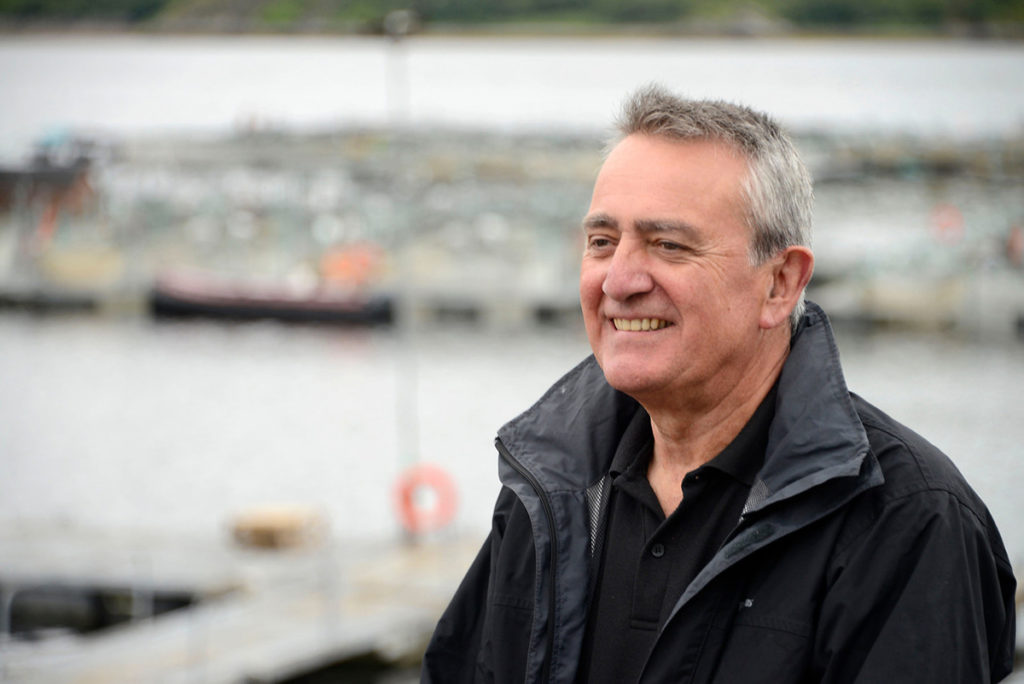Rural Economy and Connectivity Committee criticizes government’s ‘light touch’ approach

The Scottish government pronounced its judgement on the country’s Atlantic salmon farming industry last week in publishing of the long-awaited Rural Economy and Connectivity (REC) Committee report, following a year-long enquiry.
The “light touch regulation and enforcement” in place in Scotland, the report acknowledged, has not kept up with the industry’s rapid growth, necessitating sweeping changes.
Of the 65 wide-ranging recommendations aimed at improving the industry, many are focused on increasing government oversight, including recommendations for mandatory reporting of disease outbreaks, fish mortalities and sea lice numbers; relocating poorly sited farms; siting new farms far from wild salmon migratory routes; and preventing farms with high mortality rates from expanding.
The reckoning comes after years of lobbying from the anti-salmon farming sector, who regularly voice concerns about the health, welfare and environmental aspects of the industry. Scottish Wildlife and Countryside Link, the Scottish Wildlife Trust, the Community of Arran Seabed Trust and Salmon and Trout Conservation Scotland have all expressed negative thoughts on the development of salmon farming over the years. In several cases, they have succeeded in having new site applications stopped, particularly in sensitive areas.
The 11-strong committee convened in January 2018 to set about gathering evidence. It heard from 160 sources and took the views of both protagonists and dissenters into account. Fishfarmers, industry organisations, commercial and leisure fishing interests, councils, regulators and individuals, all had their say through written submissions and six oral evidence gathering sessions.
The committee also met representatives during fact finding visits to fish farms and hatcheries and studied specialist reports on different aspects of the industry.
Their review included a deep dive into disease outbreaks, mortalities, gill health, sea lice, waste, medicine use, deterring predators, interactions with wild fish and the decline of wild salmon populations, collaboration with other sectors, escapes, farm location, regulatory responsibly, climate change and current research.
The REC report called for industry to prioritize the exploration of offshore farm sites in deeper waters, to decrease the impacts of farms on the seabed, on wild fish, and on fish health. Such a move could also make the industry more resilient to rising water temperatures due to climate change.
The Scottish salmon farming sector is at a critical phase of its development and the report’s recommendation that regulation is improved to keep pace with potential growth is encouraging.
On the plus side, the committee acknowledges that the industry has a considerableeconomic and social value to Scotland. It provides jobs in rural areas, investment and spend in local communities, and stimulates economic activity in the wider supply chain.
Salmon farming supports around 7,000 jobs, contributes U.S. $2.3 billion to the Scottish economy each year, and has ambitions to more than double production by 2030 to 400,000 metric tons. It is already the country’s largest food export.
However, the economic, environmental and social challenges that salmon farming creates for other businesses which rely on the natural environment were also recognised. The committee rejected calls for a moratorium on new salmon farms in Scotland due to “insufficient evidence.” It warned, however, that regulators needed to “raise the bar.”
The committee expressed concern that industry standards “could become technically misaligned with those in the EU post-Brexit,” which could lead to problems in accessing EU markets. It called on the Scottish government to indicate how it intends to work with the UK government to address the issue.
The Scottish Salmon Producers Organisation (SSPO) has cautiously welcomed the report, especially the way in which it recognises the opportunities for well-regulated, sustainable growth. In line with all the major salmon farming companies, SSPO is studying the recommendations closely before making more substantial pronouncements.
“We agree with the committee that there is no evidence that salmon farming should not continue to grow sustainably. The Scottish salmon farming sector is at a critical phase of its development and the report’s recommendation that regulation is improved to keep pace with potential growth is encouraging,” said SSPO chief executive, Julie Hesketh-Laird.
“The health of our fish and the environment we depend on are vital for salmon farming and all SSPO members invest significantly in these areas. We intend to continue that investment and welcome involvement in any future discussion to ensure that future changes in farming regulations are robust, inspire confidence in all stakeholders and are practical and workable,” she added.
The issue of sea lice is a major concern for anglers and the committee decided that industry had “not yet identified a means to fully and effectively deal with this parasite,” while acknowledging that actions and interventions have been under way for some time.
For example, the government’s 10-year Farmed Fish Health Framework (FHF), which promotes collaboration between industry, regulators and scientists to underpin long-term improvements in fish health and welfare, has a workstream on sea lice. The framework includes work to review the current voluntary sea lice compliance policy and reporting mechanisms, explore the potential benefits of site consolidation, and develop sea lice modelling.
The committee found that the FHF “provides an opportunity to remove confusion around this issue and develop proposals that are appropriate both to the fish health management needs of the Scottish industry and to the regulatory regime. It considers, however, that these should be challenging and set a threshold that is comparable with the highest international industry standards.”
The committee is strongly of the view that “The working group should seek to bring forward proposals which make compliance and reporting a mandatory requirement” and that the compliance policy should be “robust, enforceable and include appropriate penalties.”
Sea lice data is currently produced quarterly in arrears in Scotland, but in Norway, which has the largest salmon farming industry in the world, the figures are produced weekly. Norwegian data is published on an interactive website that gives full public and management access.
Ben Hadfield, managing director of Marine Harvest Scotland, told the committee that “the ideal would be for the industry to move forward and mirror the Norwegian level of granularity in its publications, and for us all to come together to create a solution-focused culture in which we can develop the industry in a sustainable way. I strongly advocate that that is the right way to go.”
Marine Harvest was particularly pleased to see recommendations for continued improvement to consumer education, data reporting, organic waste management, fish health, monitoring and regulatory enforcement, workforce development and housing, strategic siting guidance, science funding and collaboration between farmed and wild fish sectors.
Hadfield explained that while the company is already leading the industry with regards to some committee recommendations, such as wrasse cleaner fish culture, sea lice reporting and wild fish sector collaboration, his company looks forward to collaborating on other new initiatives with key stakeholders.
Meanwhile, back at the parliament, Fergus Ewing, Scottish Government Cabinet Secretary for the Rural Economy and a strong advocate of salmon farming, said in a statement that the sustainability issues the report brought up were already being addressed by various working groups. He expressed his disappointment “that the committee has not fully explored nor analyzed salmon farming’s economic and social contribution and benefit more fully.”
Follow the Advocate on Twitter @GAA_Advocate
Author
-
Nicki Holmyard
Nicki Holmyard has written about the seafood industry for longer than she cares to remember! A committed pescetarian, she is also a partner in the UK’s first fully offshore rope-grown mussel farm.
Tagged With
Related Posts

Innovation & Investment
Aquaculture Exchange: David Little, University of Stirling
David Little, professor at the University of Stirling in Scotland, tells the Advocate about the rapid evolution of the aquaculture industry in Southeast Asia — where he made his home for many years — and discusses the role of academia in ushering in new eras of innovation.

Health & Welfare
Fish producers benefit from humane slaughter techniques
EU legislation requires farmed fish be spared unnecessary pain, distress or suffering at slaughter, and efficient manual and automated systems have been developed to help achieve this goal. What’s more, longer shelf life and improved flesh quality have been reported.

Intelligence
Aquaculture UK: Stepping up to the plate
There’s considerable opportunity to grow the UK aquaculture industry. At the Aquaculture UK exhibition and conference in Aviemore, Scotland shows the way.

Intelligence
On the Job: Scottish salmon stalwart signs off after 41 years
As Steve Bracken retires after more than four decades of fish farming, he reflects on his career producing Scottish salmon and shares his well-earned perspectives on aquaculture’s past and future.


